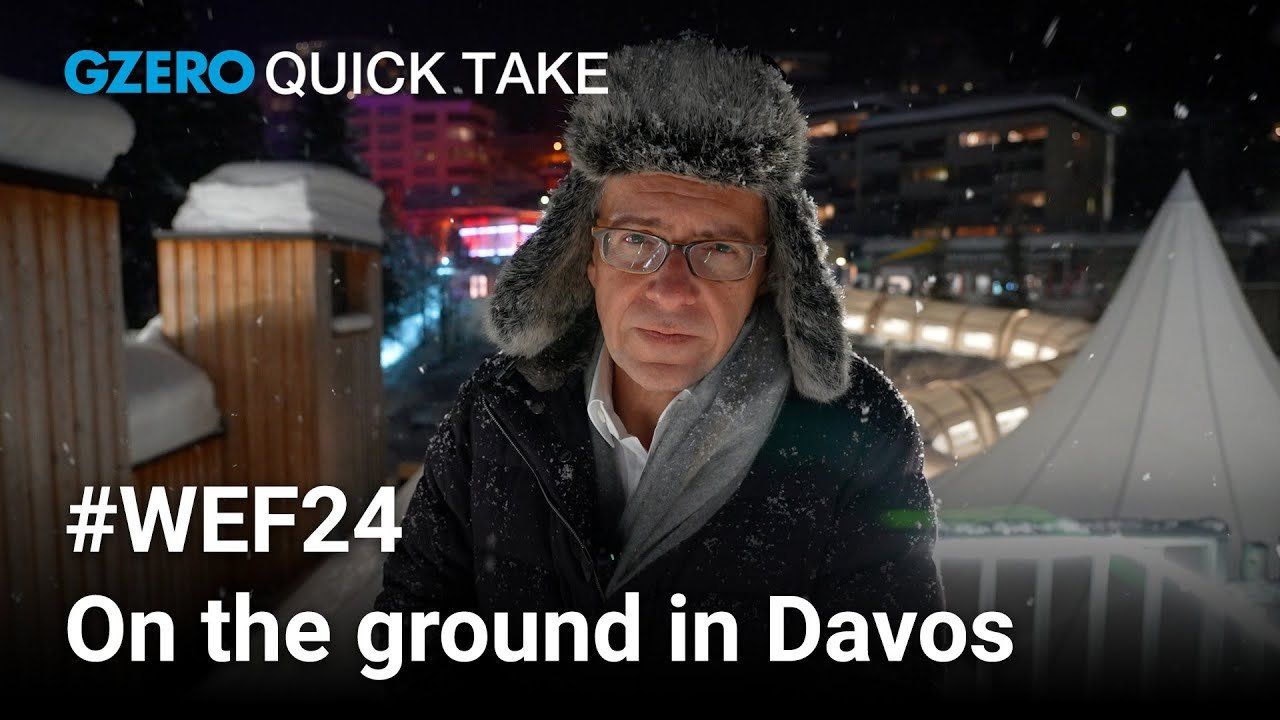Davos 2024: China, AI & key topics dominating at the World Economic Forum

Ian Bremmer's Quick Take: Hi, everybody. Ian Bremmer here in Davos, Switzerland, for the kickoff of the World Economic Forum, 54th annual, though I haven’t been coming for quite that long. Lots going on here, of course, lots of concerns given ongoing wars as backdrop.
The big story so far, I would say, is that the Chinese are in force, 140 members of the delegation, ten ministers showing up, all with economic portfolios, and they want to engage. This is about a near state visit with the Swiss government, a trade agreement, and basically talking to a bunch of foreign direct investors, many of whom are saying, “Hey, we don't think you guys are so investible; we're going more into India and Vietnam and Mexico.” And the Chinese recognizing that they need to put up and make life easier for them. That has been interesting.
The Americans, especially the American government, very skeptical about all of this, of course, but in the near-term at least, don't have a major crisis, especially on the back of recent Taiwan elections. A lot of people are expecting a crisis there. Both sides trying to manage it. On the more negative camp, Ukrainian President Zelensky coming shortly. 83 states participated in an effort at some kind of peace negotiations just yesterday. Perfectly friendly meeting, absolutely no movement towards any diplomacy. The Russians aren't there, the Chinese aren't there, and the Ukrainians aren't going to accept anything that's remotely acceptable to the Russians as a party. What that means, of course, is that the Ukrainians are feeling increasingly desperate, that they need to make sure they get the support to defend themselves at a time that the Europeans are worried about spending the money and the Americans are divided about spending the money.
A little good news there, Senator Chris Murphy was supposed to be part of the big congressional delegation that comes to Davos every year from the US, didn't show up at the last minute. The reason is because they are working and making progress to get that additional budget deal done in Washington that would provide for some border security money, also provide for money, $60 billion for Ukraine, help them defend themselves in 2024. It's not what Trump wants to see, but he's not the Republican nominee yet, so the consequence is there is still movement.
Other final thing here that's getting a lot of a lot of attention is artificial intelligence. Of course, because it's the World Economic Forum, you mostly have people that are selling their new companies, but there's a lot of money behind them, a lot of enthusiasm. And unlike most flavor of the month type technologies, this is affecting pretty much every company in every sector here. So you can't go to a corporation or a bank and not have an AI related conversation as part of your bilateral. That's pretty interesting. 15 years of coming here, I've never seen anything like it. I'm kind of optimistic. Even though the technology is moving a lot faster than the governments.
Anyway, that's it kicking off this week at the World Economic Forum. I hope everyone is doing well, and I'll talk to you all real soon.
- China flirts with deflation. Why is that a bad thing? ›
- We need to talk about China’s economy ›
- China’s economy in trouble ›
- Ian Explains: Why China’s era of high growth is over ›
- Why is Xi Jinping willing to slow down China’s economy? ›
- Davos 2024: AI is having a moment at the World Economic Forum - GZERO Media ›
- Ukraine pushes to stay top of mind at Davos 2024 - GZERO Media ›
- How is the world tackling AI, Davos' hottest topic? - GZERO Media ›
- Join us Jan. 22 from Davos for a Global Stage discussion on the AI economy - GZERO Media ›